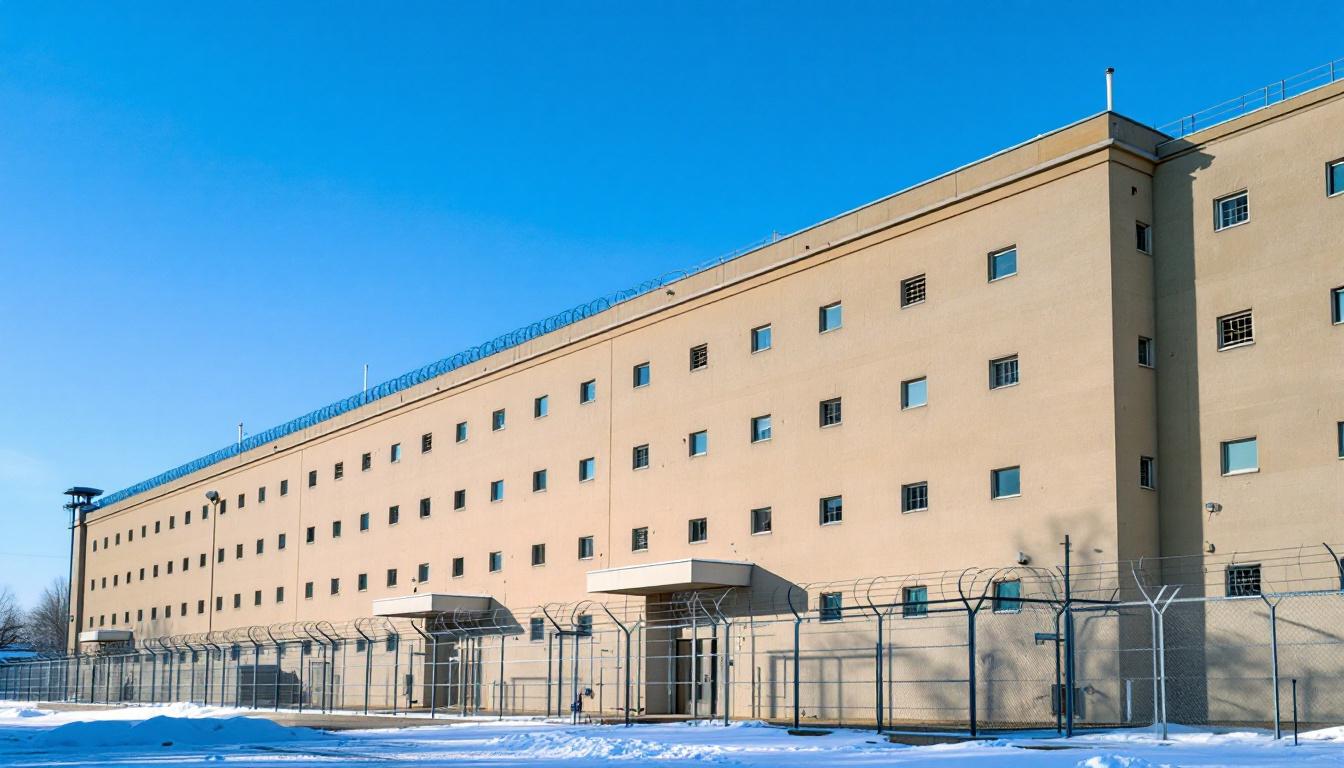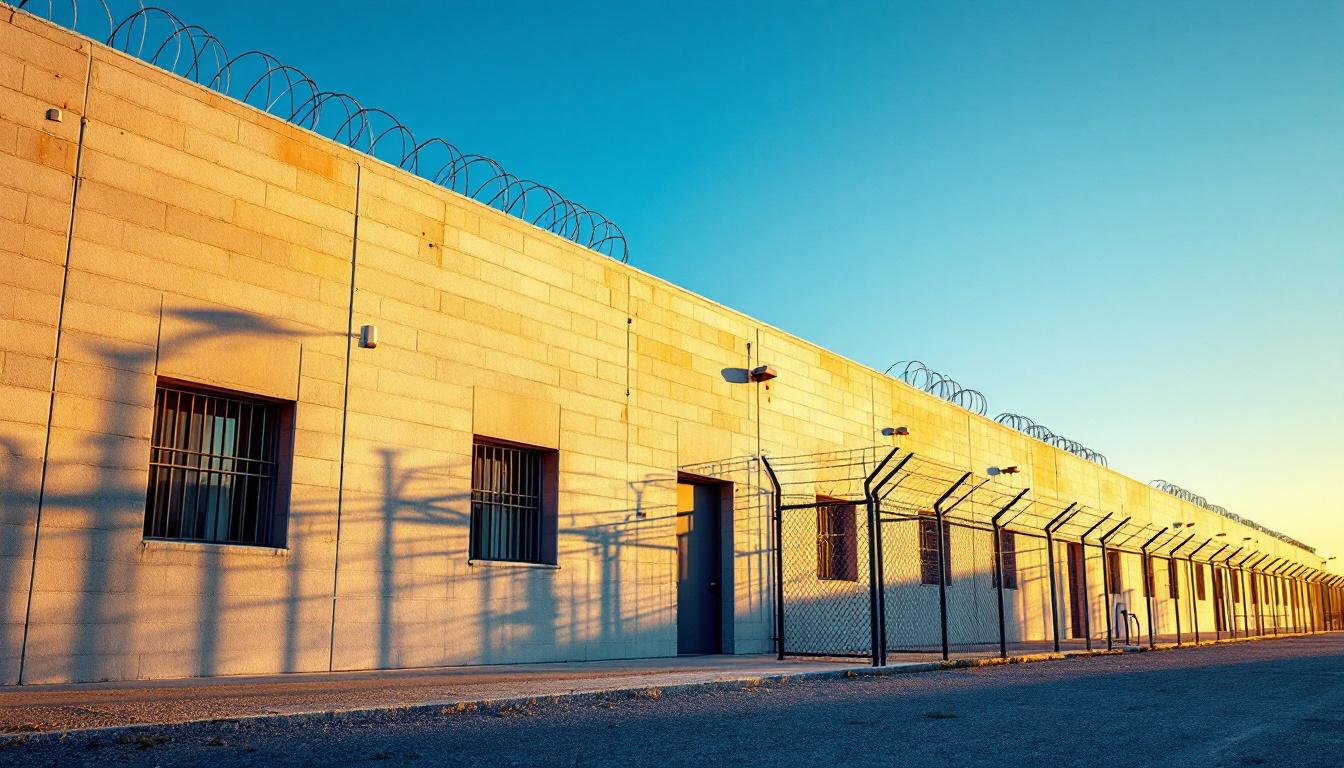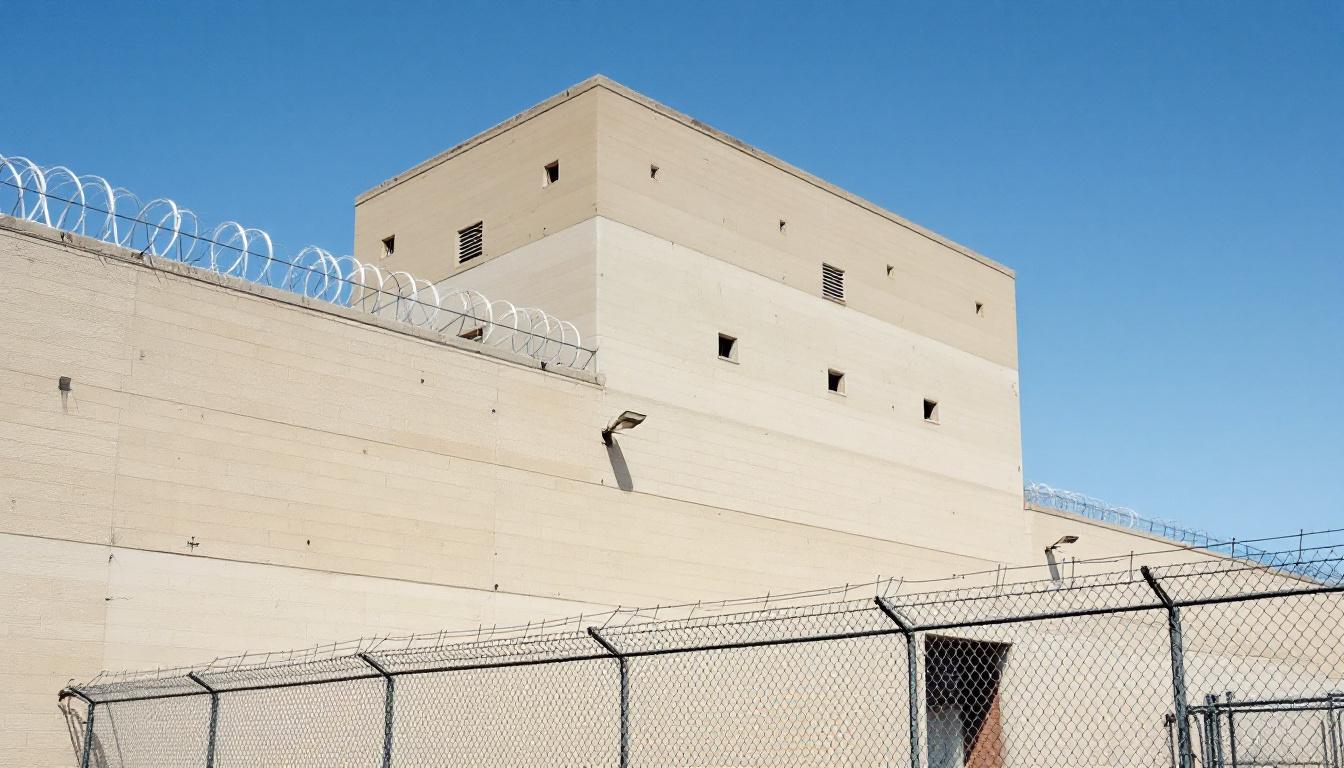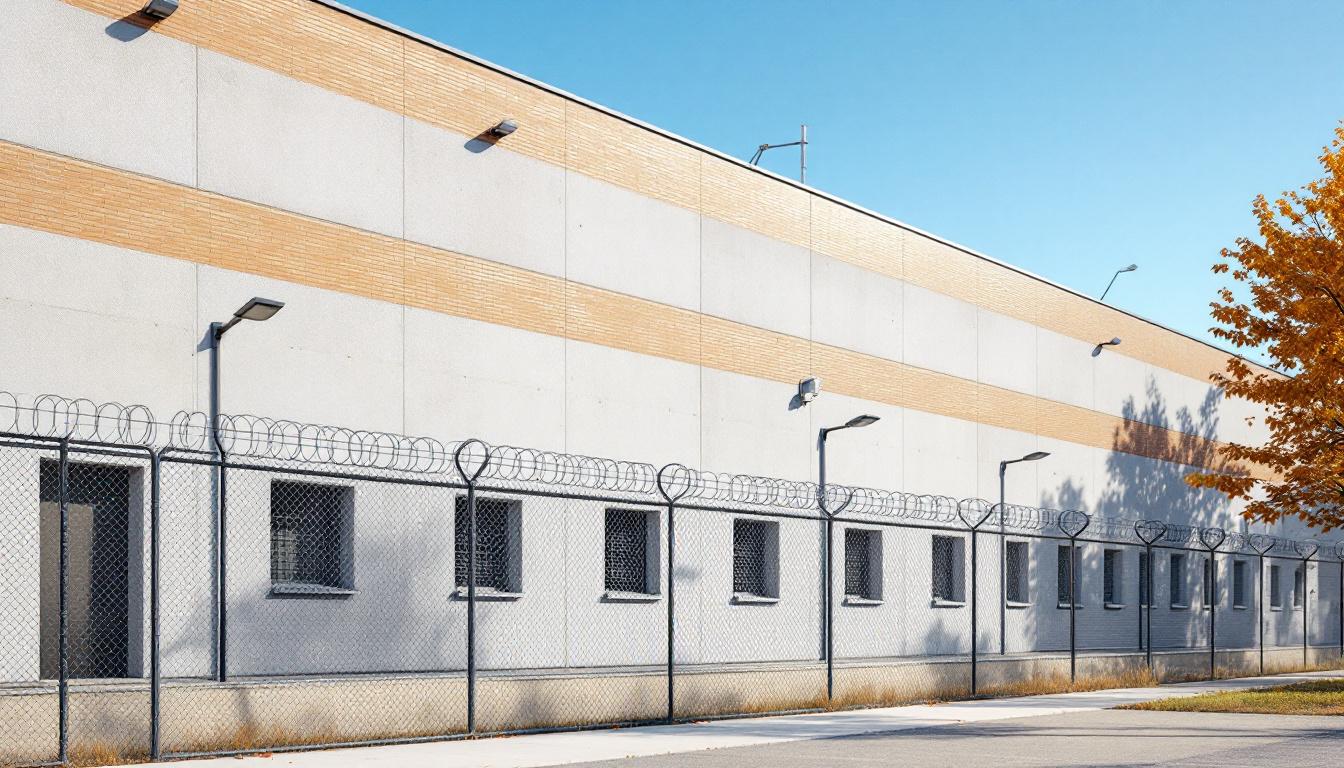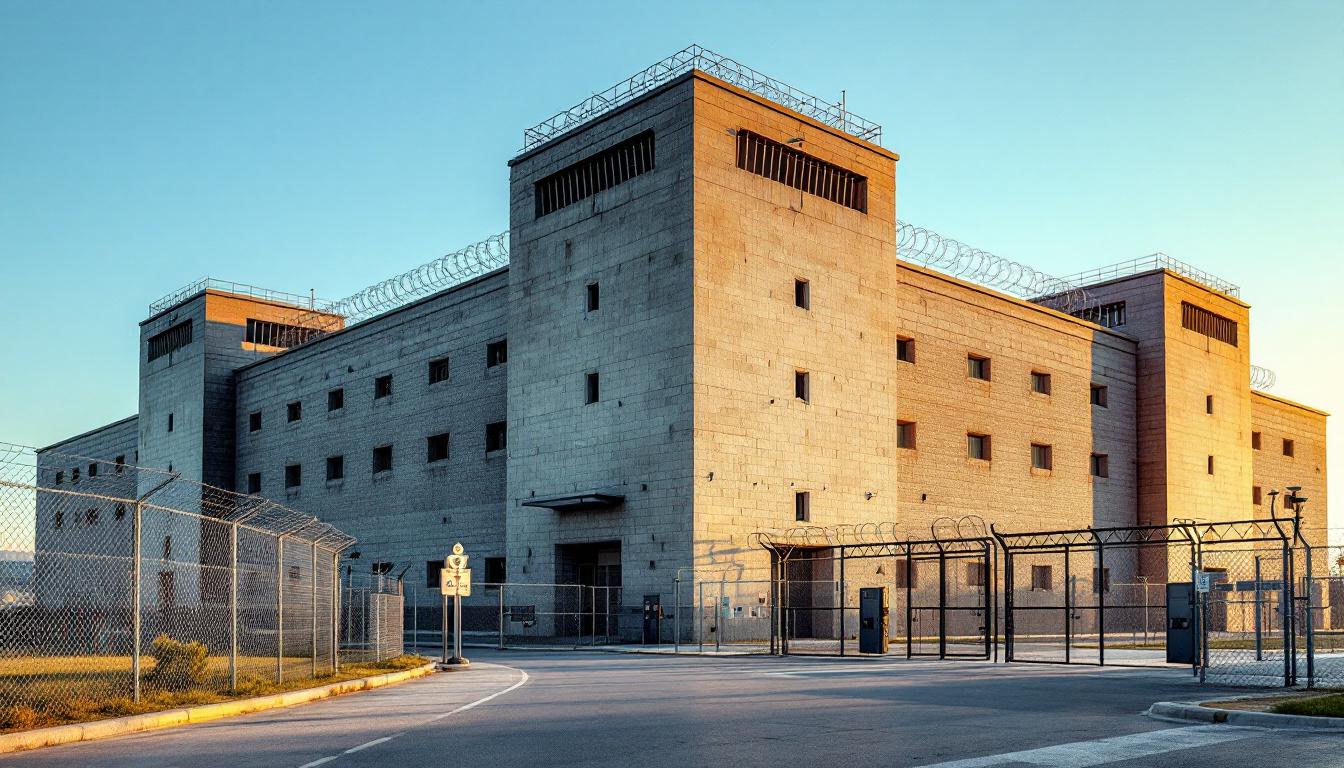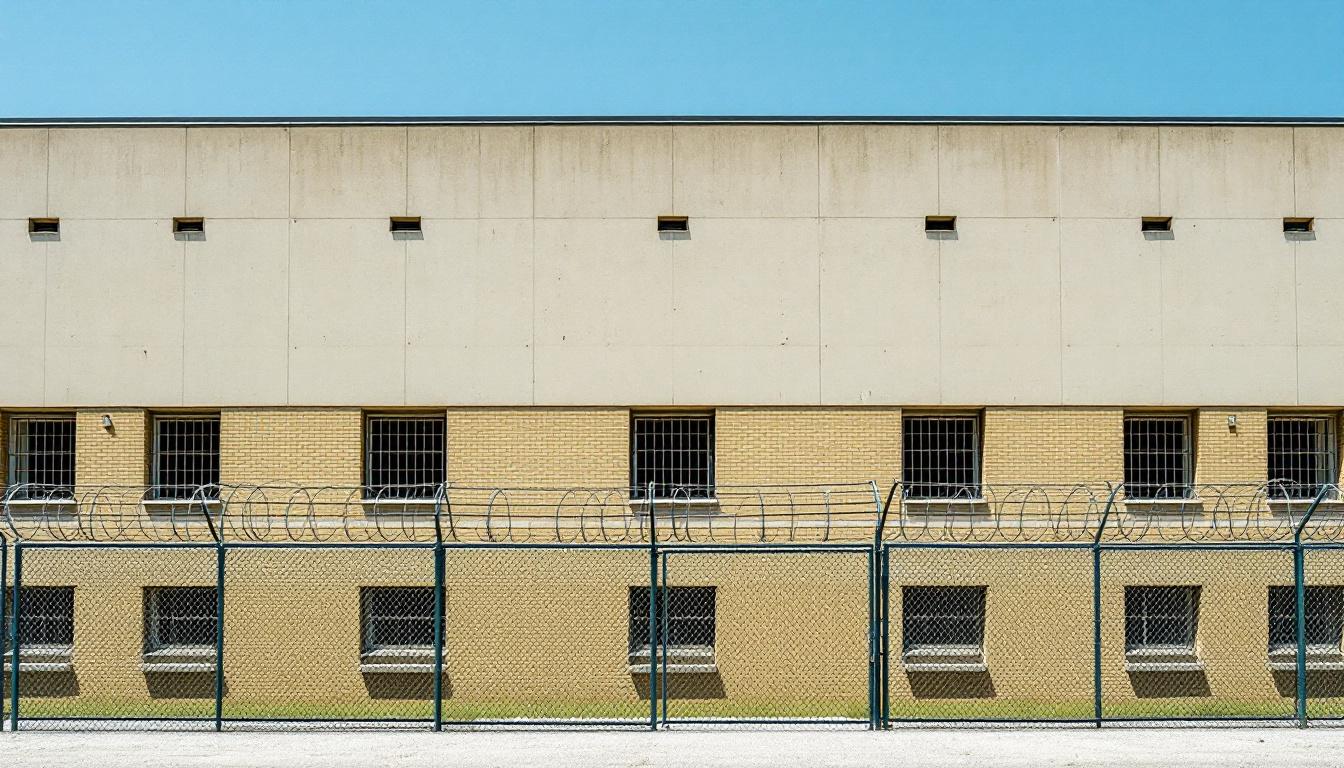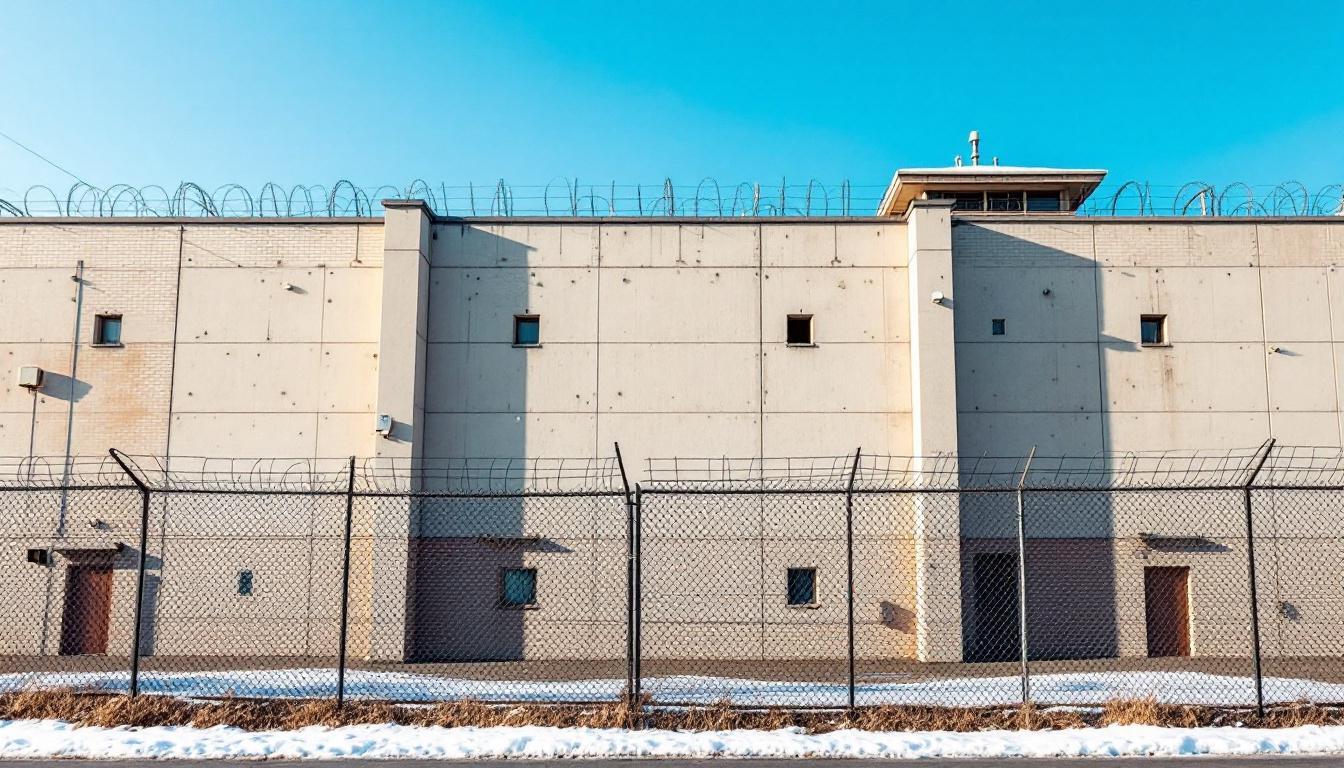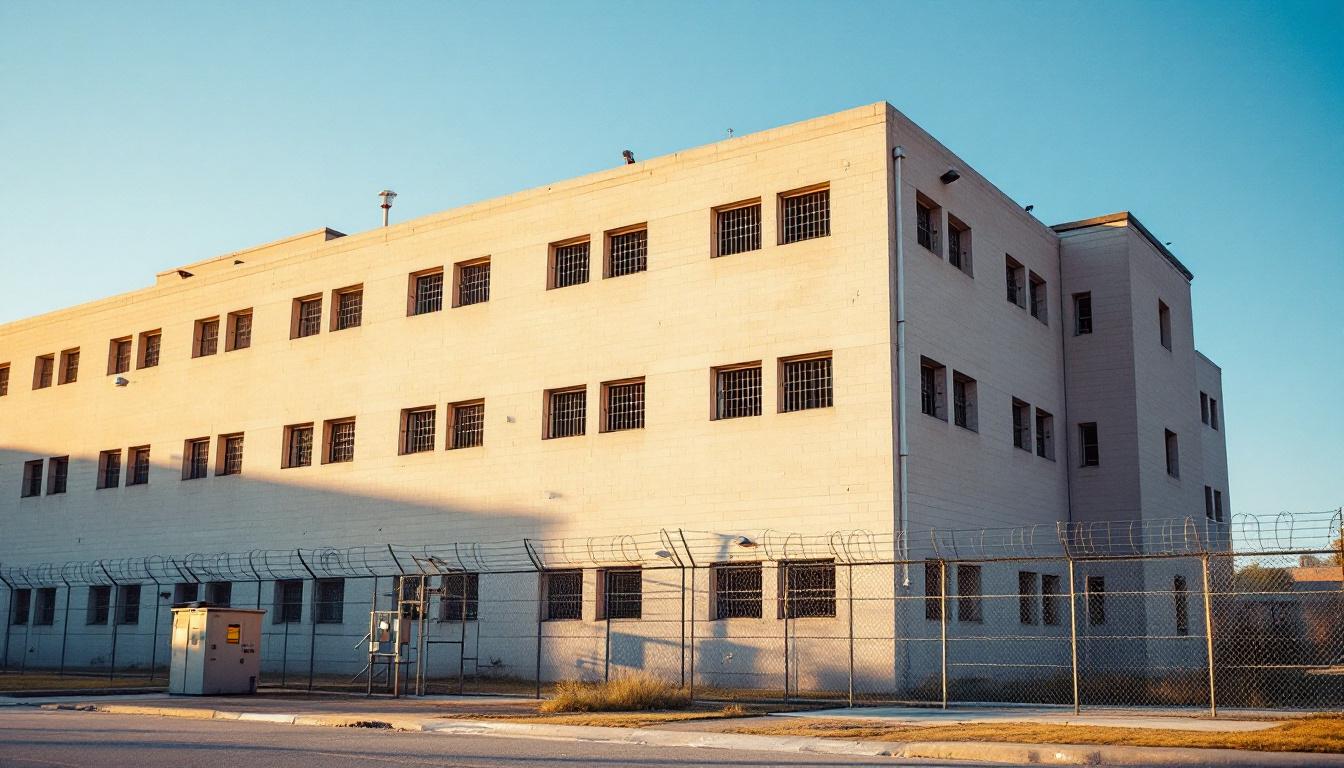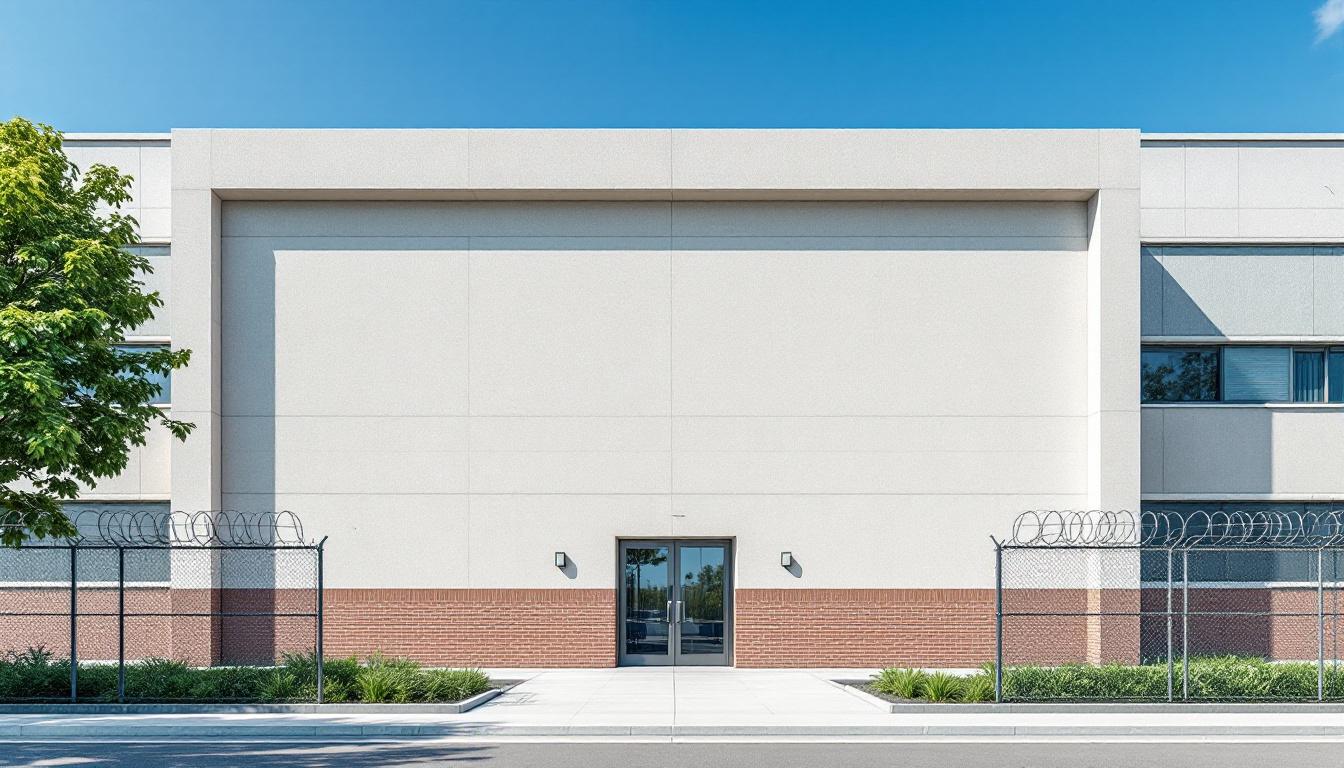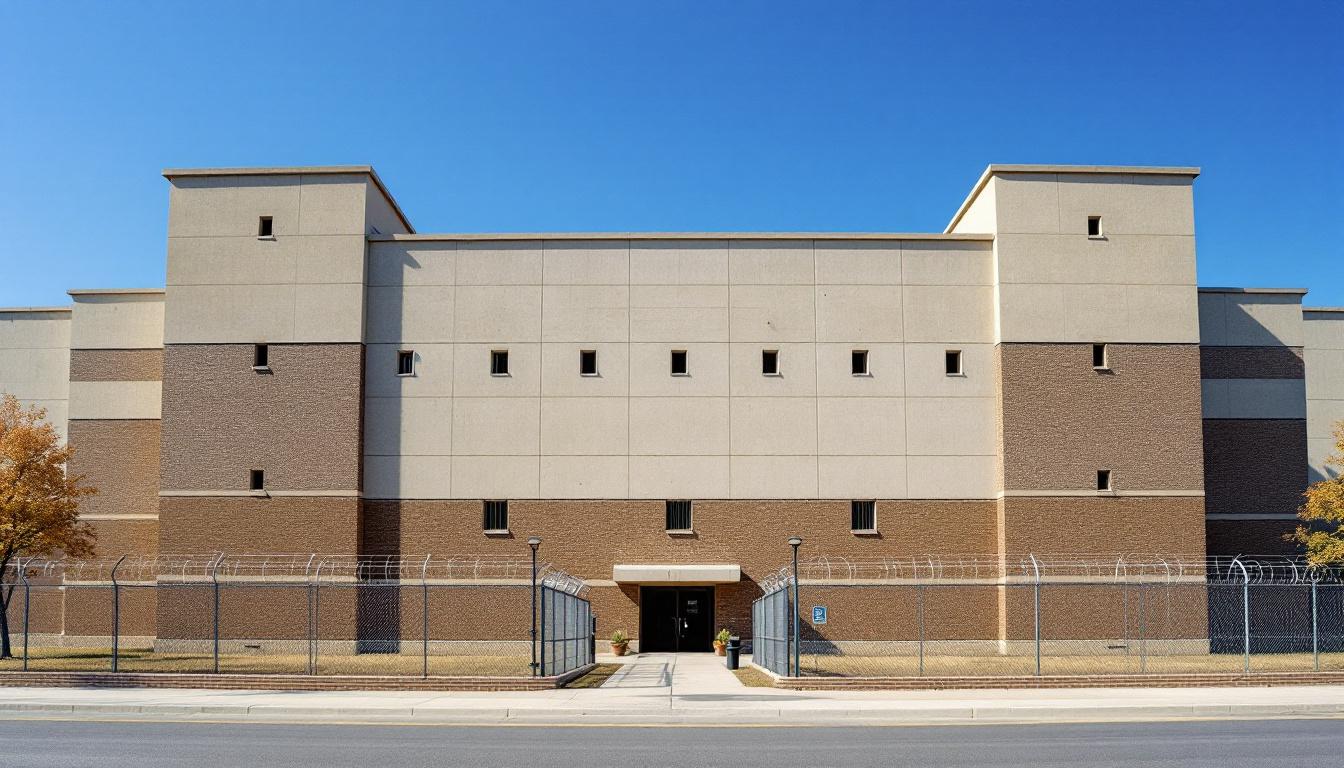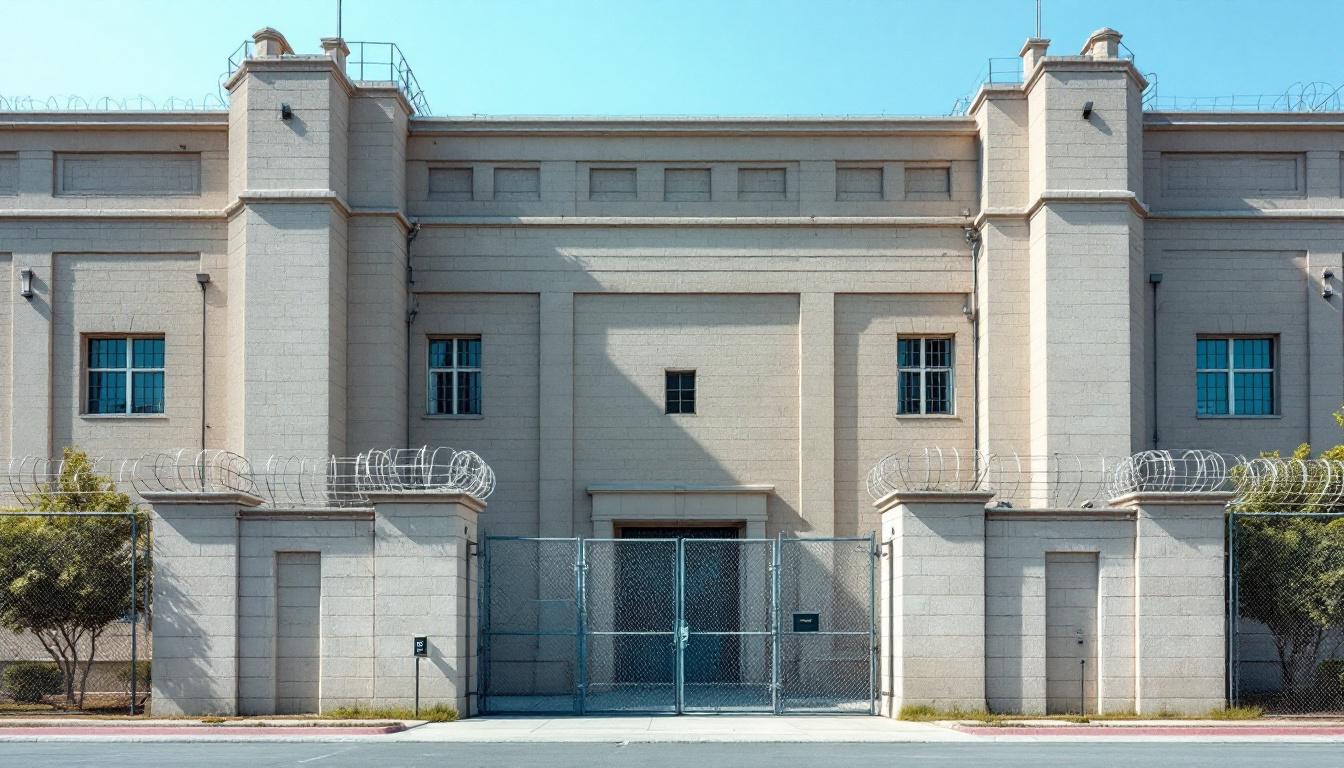
Quick Navigation
How to contact an inmate at Dooly State Prison
This comprehensive guide will walk you through how to connect with an inmate at Dooly State Prison. Follow the steps below to find an inmate and send letters and photos:
- Search for the inmate using our search tool below
- Create your account or log in to Penmate
- Write your message (up to 6,000 characters)
- Send instantly - inmates receive printed copies daily
Find an Inmate
Search for an inmate to start communicating today
Tip: You can search by first name, last name, or inmate ID number
To contact a person at Dooly State Prison start by searching for the person on the facility website. Perform a search by following these steps:
- Step 1: Enter their first name and last name into the search form and click "Search"
- Step 2: Locate their inmate record
- Step 3: Write down their Inmate ID and any housing information provided
Important! Be sure to enter the person's full name. Nicknames should not be used.
How to Send Messages to Inmates

You can use your phone or computer to send emails, letters, and photos to an inmate. Messages are sent electronically to inmate tablets or kiosks at the facility. If you would like to send a message, start by searching for an inmate at Dooly State Prison.
Sending Photos and Postcards

A great way to send love and support to a loved one at Dooly State Prison is to send photos and postcards. It only takes a few minutes to send photos from your phone and it makes a huge difference. You can also mail postcards with words of support and inspiration, or design your own postcard for special moments like birthdays and holidays.
Important! Be sure not to send any explicit photos or they may not be approved by the facility. You can also use a photo printing app like Penmate to make sure your photos are printed at the correct size (4x6 or 3x5) and are mailed according to the rules and regulations of Dooly State Prison.
Frequently asked questions about Dooly State Prison
-
How long does it take to deliver a message?
If you're sending an email message your letter is usually delivered within 24-48 hours. For messages sent via mail you should expect delivery within 3-7 days. All messages will need be approved by Dooly State Prison.
-
How much does it cost to send a message to Dooly State Prison?
You can send a message free using your phone or mail a message via USPS for the price of a $0.60 stamp and envelope. You can also purchase credits or e-stamps from services starting at $1.99.
-
What services can I use to contact an inmate at Dooly State Prison?
Penmate
You can use Penmate to send letters and photos to an inmate from your phone. It's an easy way to stay in touch during your loved one's incarceration. Use the inmate locator to find an inmate's location and contact information, then you can send messages within a few minutes.
Securus messaging
Securus may be another option for communicating with an inmate at Dooly State Prison. You can create a friends and family account and purchase credits to send messages. All messages will be reviewed and must be approved by the facility.
JPay
Some county jails and state prisons may support sending messages with JPay. You must register an account with the system, find your loved one, and purchase stamps to send messages. For some locations you can also attach photos.
Smart Jail Mail
You may also check if Smart Jail Mail is available at Dooly State Prison. Smart Jail Mail is operated by Smart Communications and has contracted with some state and county jails. After purchasing credits, your messages and photos are sent to the facility, printed out, and then handed out to your loved one.
-
What is the mailing address of Dooly State Prison?
Mailing address:
Dooly State Prison
1412 Plunket Rd
Unadilla, GA 31091
Phone: (478) 627-2000 -
What are the visiting hours at Dooly State Prison?
Visiting hours at Dooly State Prison vary by housing unit and security level. Generally, visits are scheduled on weekends and holidays, with some facilities offering weekday visits. Contact the facility directly at (478) 627-2000 or check their website for the current visiting schedule. Visits typically last 30-60 minutes and must be scheduled in advance.
-
What items are prohibited when sending mail to Dooly State Prison?
Prohibited items typically include: cash, personal checks, stamps, stickers, glitter, glue, tape, staples, paperclips, polaroid photos, musical or blank greeting cards, hardcover books, magazines with staples, and any items containing metal or electronics. Only send letters on plain white paper with blue or black ink. Photos must be printed on regular photo paper (no Polaroids). Always check with Dooly State Prison for their specific mail policies.
-
How do I send money to an inmate at Dooly State Prison?
You can send money to an inmate at Dooly State Prison through several methods: 1) Online using JPay, Access Corrections, or the facility's approved vendor, 2) Money orders mailed directly to the facility with the inmate's name and ID number, 3) Kiosks located in the facility lobby, or 4) Over the phone using a credit or debit card. Fees vary by method, typically ranging from $2.95 to $11.95 per transaction.
-
Can I schedule a video visit with an inmate at Dooly State Prison?
Many facilities now offer video visitation as an alternative to in-person visits. At Dooly State Prison, video visits may be available through services like Penmate, Securus Video Connect, GTL, or ICSolutions. Video visits typically cost $10-20 for 20-30 minutes and must be scheduled in advance. You'll need a computer or smartphone with a camera and reliable internet connection. Contact the facility for their specific video visitation policies and approved vendors.
-
What identification do I need to visit an inmate at Dooly State Prison?
All visitors must present valid government-issued photo identification such as a driver's license, state ID, passport, or military ID. Minors must be accompanied by a parent or legal guardian who can provide the minor's birth certificate. Some facilities require visitors to be on the inmate's approved visitation list, which may require a background check. Contact Dooly State Prison for specific ID requirements and visitor approval procedures.
-
How can I find out an inmate's release date?
To find an inmate's release date at Dooly State Prison, you can: 1) Use the online inmate search tool if available, 2) Call the facility's records department, 3) Contact the inmate's case manager or counselor, or 4) Have the inmate provide this information during a call or visit. For privacy reasons, some facilities only release this information to immediate family members.
Facility Overview

About Dooly State Prison
Since 1968, West Jackson, Georgia has been home to the Georgia Diagnostic and Classification Prison (GDCP), a close-security facility that serves multiple critical functions within the state's correctional system. With a capacity of 2,487 inmates, this facility operates as both a diagnostic center for male offenders and a specialized housing unit for some of the state's most serious cases. Following significant renovations in 1998, GDCP maintains its mission to ensure public safety while effectively housing offenders in a safe and secure environment.
The facility's comprehensive approach to corrections includes conducting diagnostic processing for male offenders entering the system, operating the 90-day Segregated Transition Educated Program (S.T.E.P.), and maintaining specialized housing for offenders Under Death Sentence (UDS). GDCP also houses a Special Management Unit and carries out state-ordered executions as part of its operational responsibilities. Located in West Jackson, the facility serves as a crucial component in Georgia's correctional infrastructure, providing both assessment services for incoming inmates and long-term housing for various classification levels.
GDCP typically offers structured visitation schedules that vary based on inmate classification and housing assignment. The facility maintains different visitation protocols for diagnostic offenders, general population inmates, and those in specialized programs, with visiting hours generally running from 9:00 AM to 3:00 PM on designated days. Professional and family visitation services are coordinated through the facility, though specific restrictions may apply depending on operational circumstances and individual inmate status within the various housing units.
Programs & Services
The Segregated Transition Educated Program (S.T.E.P.) represents a specialized 90-day initiative at GA Diagnostic Class Prison designed to support offender rehabilitation and successful reintegration. This structured program typically combines educational components with behavioral interventions, helping participants develop essential life skills and coping strategies. As a diagnostic facility, GDCP also conducts comprehensive assessments for male offenders entering the Georgia correctional system, which may include evaluating educational needs, mental health status, and appropriate program placements to guide their correctional journey.
Beyond the specialized S.T.E.P. program, the facility may offer various educational and vocational training opportunities commonly found in Georgia correctional institutions. These could include adult basic education classes, GED preparation programs, and vocational skills training in areas such as maintenance, food service, or custodial work. Mental health and counseling services are often available to address the diverse needs of the inmate population, particularly given the facility's role in housing offenders under death sentence and those requiring special management.
The facility's mission to "ensure public safety and effectively house offenders while operating a safe and secure facility" extends to providing support services that may include substance abuse counseling, anger management programs, and religious services. Library services and recreational activities typically complement these offerings, while the Special Management Unit may provide specialized programming tailored to inmates requiring additional structure and support. These comprehensive services work together to address the complex needs of offenders while maintaining the security and safety standards required for a close-security facility.
Daily Life & Visitation
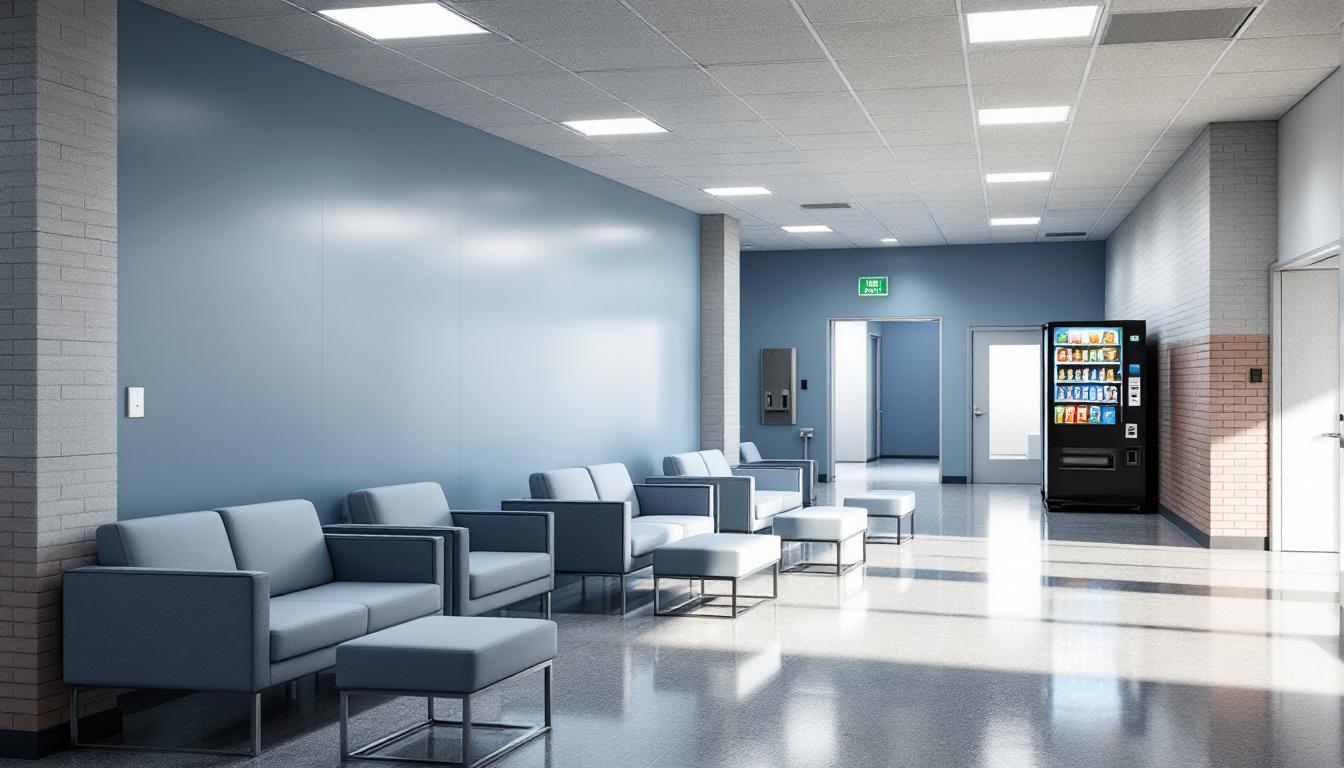
With visitation hours beginning at 9:00 AM and varying significantly based on housing assignment, residents at GA Diagnostic and Classification Prison experience different levels of family contact depending on their classification. Those undergoing diagnostic processing must wait 60 days before receiving visits from immediate family members on Mondays, Tuesdays, and Thursdays until 1:00 PM, while general population residents typically enjoy weekend and holiday visits from 9:00 AM to 3:00 PM. The facility's STEP Program participants follow a more structured visitation schedule requiring advance appointments on Wednesdays and Fridays across three daily time slots.
The prison's multiple housing units create distinct daily experiences for residents. Those in diagnostic processing undergo evaluation procedures as part of the facility's mission to assess and classify male offenders entering the Georgia correctional system. The Special Management Unit and death row housing (UDS) operate under heightened security protocols that may affect daily routines, meal times, and recreational opportunities. Throughout the facility, residents typically participate in structured activities that may include work assignments, educational programs, and limited recreational time, though specific schedules often depend on security level and individual classification status.
Built in 1968 with renovations completed in 1998, the facility accommodates approximately 2,487 residents across its various housing units. The prison's close-security classification means that movement and activities are carefully supervised, with residents following structured daily schedules that balance security requirements with basic needs. Mail correspondence and phone privileges typically provide additional means of maintaining family connections between scheduled visits, though these communications are subject to standard correctional facility monitoring and restrictions based on individual housing assignments and security classifications.
Ready to Connect?
Start communicating with your loved one today
Search for an Inmate
